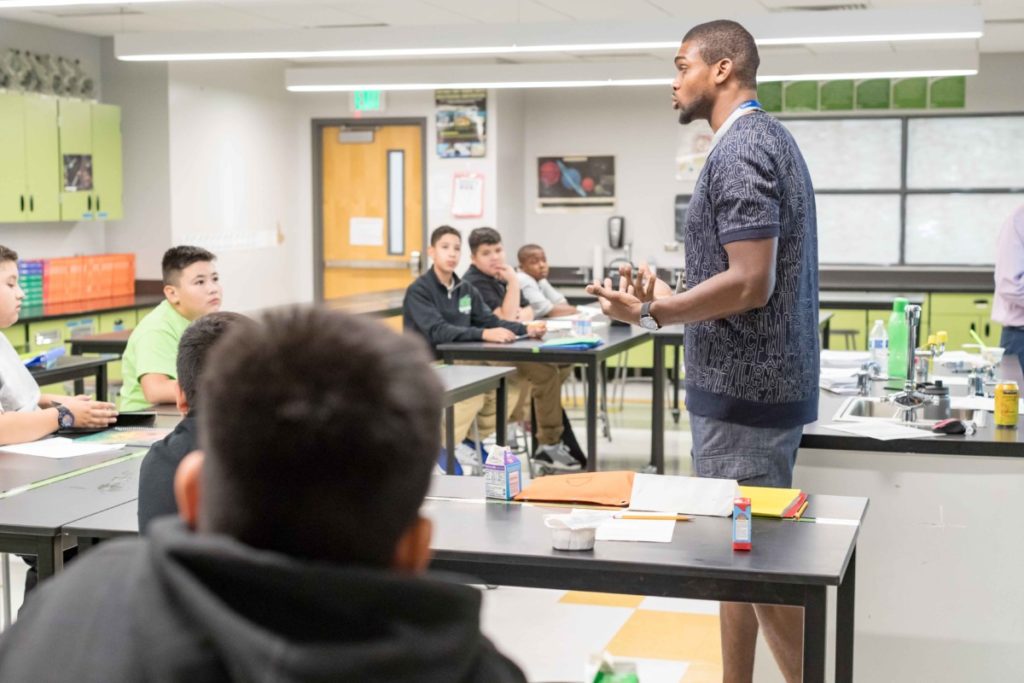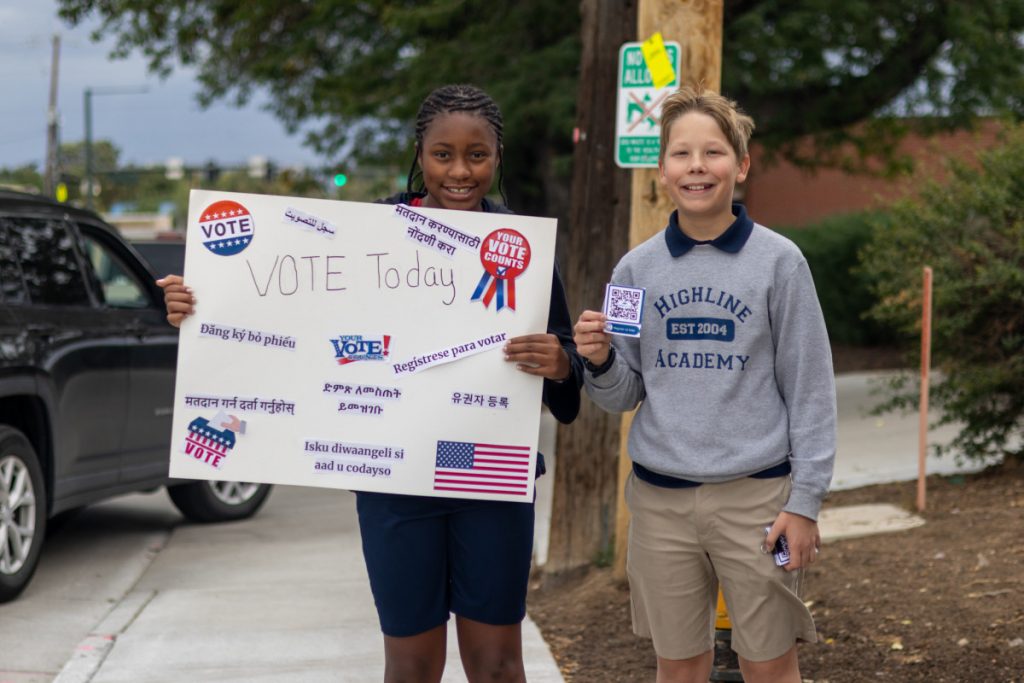After last week’s Denver school board work session, charter school students, parents, staff, and boards have legitimate reasons to worry about their future in Denver Public Schools.
Some school board members revealed an eagerness to at best overhaul and at worst take over from staff the charter school renewal process. If the current system were dysfunctional, that would be understandable.
But over the past few years, DPS has built one of the most thorough and rigorous charter authorizing and renewal processes in the country. To get approved and renewed, charter schools must undergo a painstaking examination to prove their worth and their service to children.
Then again, that might be precisely the problem. A few board members appear more interested in various political considerations than in making fact-based decisions in the best interests of children.
In challenging this process, the DPS board is treading on potentially dangerous ground. Under state law, the district currently enjoys exclusive chartering authority — meaning it alone can approve charter schools to operate within its boundaries.
But school boards must demonstrate to the State Board of Education that they have treated charter schools in a fair and equitable manner to retain their exclusive chartering status. If DPS loses that status, then charter applicants could go to the state’s Charter School Institute to gain authorization for a new school in Denver.
Given this board’s attitude, that might be a positive development, though CSI-authorized schools receive less funding than district-authorized charters.
Three key moments
There were three notable moments in last week’s work session that are worth reviewing. One was board member Jennifer Bacon’s decision — without consulting or advising at least some of her board colleagues — to direct DPS’ portfolio staff to change renewal recommendations for two schools that have been struggling.
Another was board member Scott Baldermann’s objection to any “long-term” charter renewals or extensions before a new superintendent is hired.
The third was board member Tay Anderson’s accusation that DSST’s Cole Middle School has ‘failed’ its students of color. While it’s true that in 2019 just 17 percent of DSST Cole Middle School students scored proficient or better on state tests, that still ranked it above all DPS-run schools in its cohort. And all signs point to major improvements at the school since 2019.
Anderson expressed resentment over over DSST’s successful appeal to the State Board of Education last December of the DPS board’s decision to delay the opening of DSST’s Rachel Noel High School.
Let’s briefly review each of these moments. The first was probably the most unusual. It might sound like inside baseball, but its significance is potentially significant, so bear with me.
A board power-grab?
Over the past few years, the DPS portfolio office has done deep dives into the performance of charter schools up for renewal. This has included data analysis and site visits. Staff then recommends non-renewal, or a renewal with conditions attached.
High-performing schools can get a renewal of up to five years, while schools with more uneven performance can get shorter terms, with conditions imposed. In unusual cases, schools can be recommended for closure. The school board reviews the recommendations and votes them up or down.
In this case, though, Bacon, apparently without consulting all of her colleagues, had the portfolio staff change the recommendations for DSST Cole Middle School and Girls Athletic Leadership School High School (GALS). Staff had recommended a two-year renewal for DSST Cole and a two-year renewal with additional financial monitoring for GALS. Bacon had the staff add two additional options for each school; either a shorter term or additional conditions.
This perturbed board member Barbara O’Brien, who complained the slide presentation or recommendations staff had shown her recently had been changed without her knowledge or consent.
“It just makes me wonder what is going on behind the scenes with board members pressuring staff presentations, when we haven’t all agreed that’s how we want to get our information for decisions,” O’Brien said.
Bacon acknowledged she had requested the changes, and said she did so because not all seven board members agreed on how the process has worked in the past. “My concern was that we didn’t have options,” Bacon said.
More than a few people worry that Bacon’s move presages a wholesale takeover of the charter renewal process by a board where a majority of its members carry deep reservations about the very existence of charter schools, which serve more than 21,000 students across Denver.
Ideology and payback?
The second moment, though brief, was also revelatory. Baldermann, the most reflexively pro-teachers union and therefore anti-charter member of the board, said this after the board heard the staff renewal presentations:
“The board has not set any long term goals or vision yet for the next superintendent, so I am hesitant to approve any long term renewals or extensions for these contracts, because it really kind of locks us in and it removes any flexibilities from this conversation,” he said.
While that might sound innocuous, given Baldermann’s oft-stated dislike for charters, or anything that might appear to put schools in competition with one another for students, it’s a clear signal that he is hoping DPS hires a superintendent who shares his philosophical disdain for charter schools.
The third moment was a reprise of the ongoing drama between some board members and DSST Public Schools, arguably the most successful charter network in Colorado, and one of the strongest in the country.
Anderson made it clear that he was offended by the harsh rebuke the State Board of Education gave him and his colleagues for attempting to delay for a year the opening of Noel High School.
He took aim at Cole Middle School, which has been one of the weakest DSST schools over the past few years. But his critique seemed a bit off key, given that Anderson visited the school shortly after the State Board of Education vote last December and tweeted his praise of the school: “Just wrapped up an amazing visit at @DSSTPubSchools (Cole MS Campus) excited to see their students continue to thrive.”
Last Thursday, though, Anderson sang a different tune. He seemed to suggest that DSST’s appeal to the state board amounted to ‘bullying’ of the DPS board, which he said was intolerable.
“And if you appeal to the state you appeal to the state, but this board was duly elected by the citizens of the City and County of Denver, and we must be able to do our job and ensure that every school is educating our Black and Brown kids and right now that’s just not happening at all,” he said.
“We need to be able to put all of our weight as a district down on this network and say, ‘look, you went around us the first time the first time we tried to hold you accountable, and now you’re not going to get away with this one,’” Anderson said.
O’Brien pointed out that DSST exercising its legal right to appeal a decision did not in any way amount to bullying.
DSST Cole Middle School has struggled, but Anderson continues to discount the fact that DPS staff did an extensive analysis and found that the school has made significant improvements over the past couple of years.
The board also seems to operate with a bit of a double standard here, declining to level similar criticism at its own schools that perform on the same level or below with students of color.
The next six months will tell us a great deal about where the current school board wants to take DPS over the next several years. Last Thursday’s meeting is just the latest sign that we should be very worried indeed.




